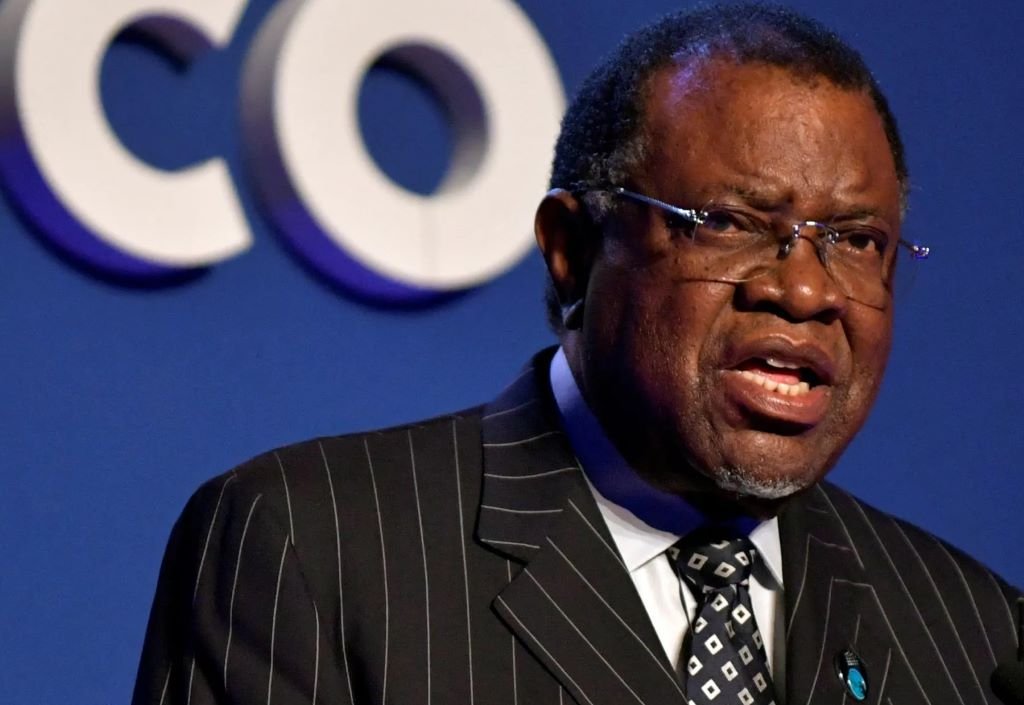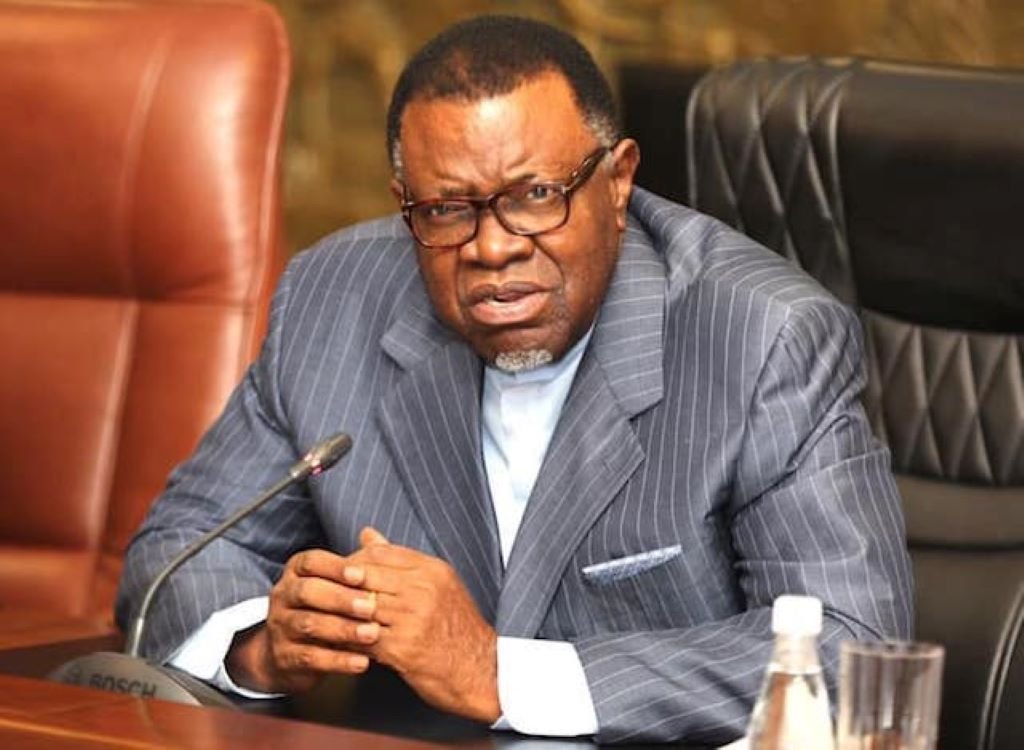Following the online announcement of Hage Geingob’s passing at 82, there is a surge of interest in details about his personal life, including his religious affiliation.
Hage Geingob, the third president of Namibia from 2015 until his demise in February 2024, held a pivotal role in the nation’s history, notably contributing to the struggle for independence from South Africa.
Geingob’s involvement in Namibia’s fight for independence led him to join the South West Africa People’s Organization (SWAPO) in the early 1960s.
He became a prominent figure in the movement, representing SWAPO at the United Nations and playing a crucial role in international advocacy for Namibia’s freedom.
Following Namibia’s independence in 1990, Geingob became the country’s first Prime Minister, serving under President Sam Nujoma until 2002.
He then held various leadership positions, including Minister of Trade and Industry from 2008 to 2012 and a second term as Prime Minister from 2012 to 2015.
In 2014, Geingob was elected as Namibia’s President, succeeding Nujoma, and he served in this capacity until his passing in 2024.
Geingob’s legacy is complex, encompassing praise for his contributions to Namibia’s independence and establishing the country as a stable democracy.
Read More: Is Mike Macdonald Christian? Religion and Ethnicity Explored
Hage Geingob Religion
Hage Geingob was widely recognized as a Lutheran, which he openly acknowledged numerous times, notably at the Lutheran World Federation Assembly in 2017.
During this assembly, he proudly declared, “I am a Lutheran!” He emphasized the influence of Martin Luther’s teachings in the fight for freedom against apartheid in Namibia.
This affiliation aligns with Geingob’s historical background. His family belonged to the Evangelical Lutheran Church in Namibia, and he attended a Lutheran school during his childhood.

Further, highlighted the significant role of Martin Luther in inspiring the liberation struggle, citing Luther’s rebellion against corruption and injustices.
At a dinner and cultural evening hosted for assembly participants, he emphasized Luther’s impact, describing him as a great thinker and prolific writer whose work inspired Namibia’s liberation struggle against apartheid and occupation.
Expressing gratitude to the Lutheran church for both moral and material support during the struggle, Geingob emphasized the special connection with the Lutheran World Federation.
With 775,000 Lutherans in Namibia, he recognized the ongoing guidance of church leaders in promoting justice, integrity, and honesty anchored in faith, including figures like Bishop Shekutaamba, Bishop Zephania, and Bishop Leonard Auala.
Hage Geingob Ethnicity And Race Explored
Geingob belonged to the Ovambo ethnic group, the largest in Namibia, specifically within the Oshiwambo subgroup. Namibia’s ethnic landscape is intricate and influenced by cultural, linguistic, and historical factors.
Born in a northern Namibian village in 1941, Geingob became the first president outside the Ovambo ethnic group, comprising over half of Namibia’s population.
His activism against South Africa’s apartheid regime, which then governed Namibia, began during his early schooling years and eventually led to his exile.

In terms of race, Namibia’s colonial history and apartheid legacy make classifications challenging.
Geingob was often categorized as Black or African, but these terms carry evolving and contested meanings, particularly within the Namibian context.
Emphasizing only racial categories risks neglecting Namibia’s distinctive social and political realities and its diverse population.
Sadly, he passed away on February 4, 2024. Geingob’s legacy is intricate and varied.
While he received widespread acclaim for his contributions to Namibia’s independence and his efforts in shaping the nation into a stable democracy, his presidential term was also characterized by challenges such as economic inequality and corruption.
You May Like: David Odonkor Religion: Is He Muslim Or A Christian? Ethnicity And Origin

